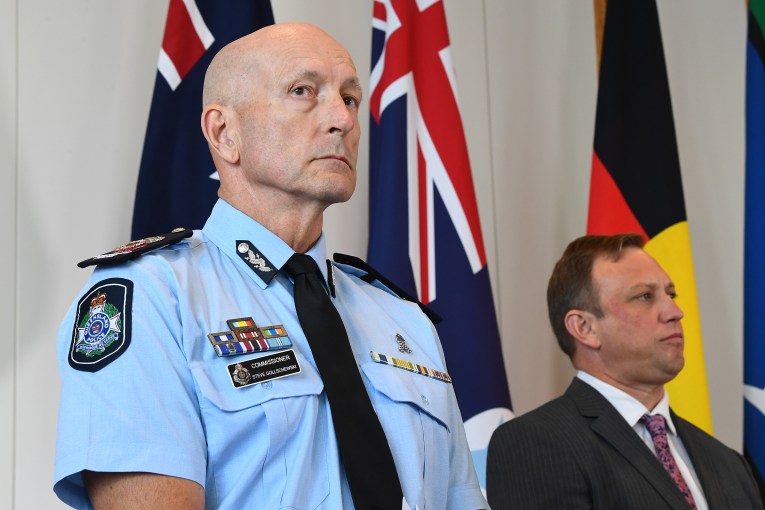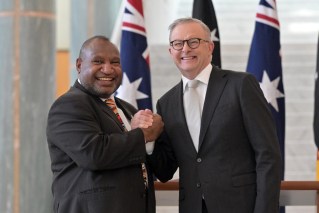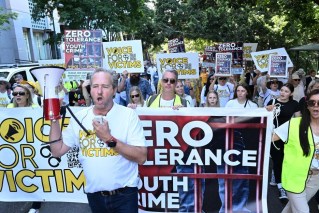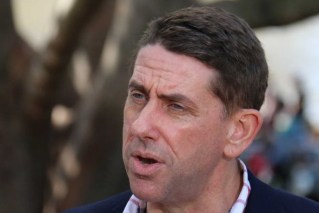Budget offers the chance for a new way of thinking – but don’t hold your breath
Queensland’s strong performance through the pandemic affords it the opportunity to shake things up in this month’s State Budget. Can Treasurer Cameron Dick move beyond business as usual, asks Dennis Atkins

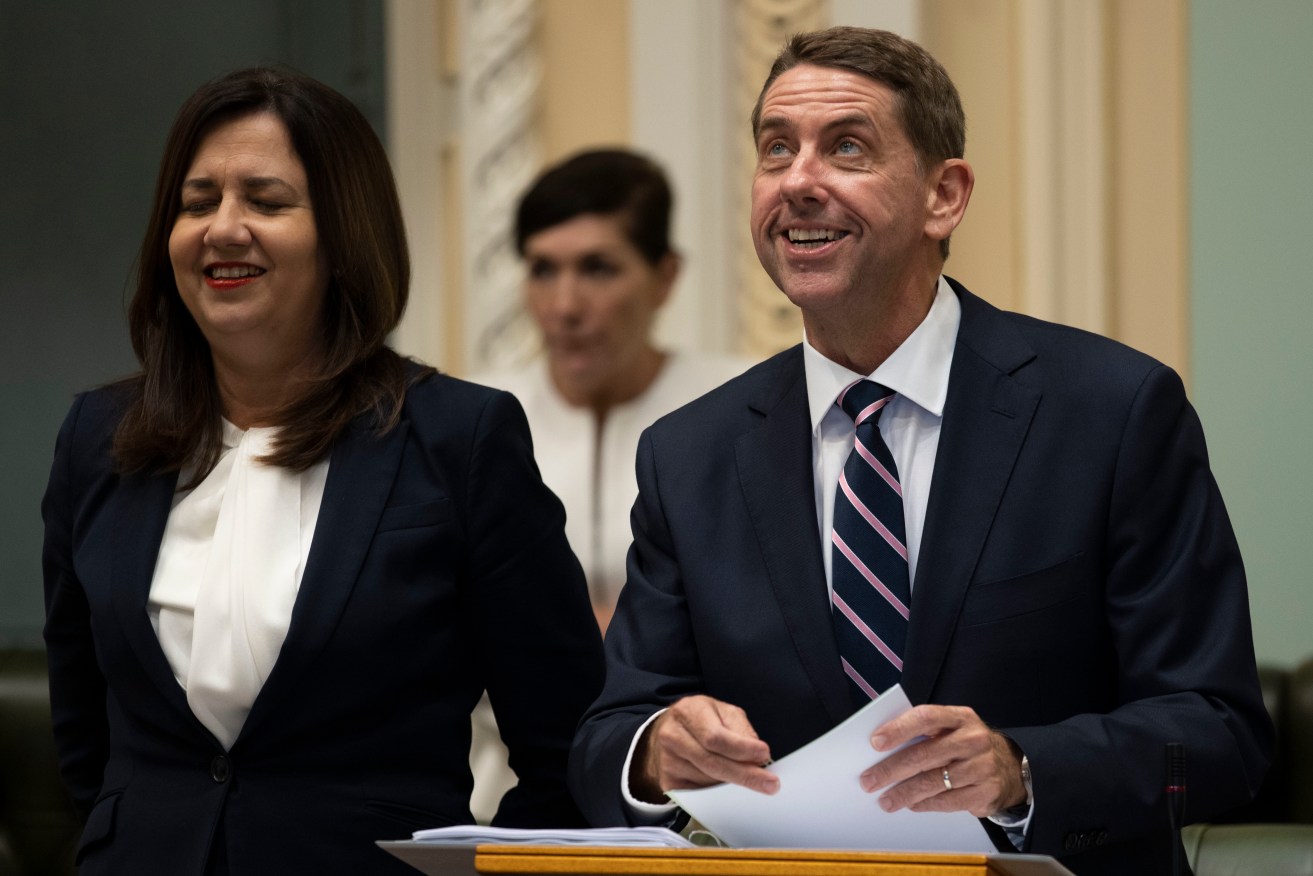
Queensland Treasurer Cameron Dick with Premier Annastacia Palaszczuk in parliament. (AAP Image/Glenn Hunt)
If Annastacia Palaszczuk is looking for a marquee announcement for her government’s budget due to drop in just two weeks, here’s one she can have, free of charge.
It’s free because it’s been pinched from the pages of The Financial Times where columnist Rana Foroohar put forward an idea for United States President Joe Biden.
Foroohar says the US needs a “resiliency tsar” who “answers directly to the president and can cut through public sector bureaucracy, think across agencies and start to focus the administration even more sharply on what it is already doing — reinventing the US economy in a way that will be structurally different from what came before”.
Now, the US is streets ahead of the slow-moving and often unimaginative Queensland Government and we’ll likely see that confirmed in Cameron Dick’s second budget.
If Dick’s first budget – patched together after the election win late last year – is any guide, we aren’t going to see any “reinventing” of the state economy. More likely, it will be more of what this government does so well. For those not paying attention, that’s known around Brisbane, and in further flung places, as BAU or business as usual.
Let’s put hope ahead of experience and expect the government to break what have become sadly entrenched habits over more than six years.
Let’s imagine there will be some creative thinking, some searching out the best ideas from not just around Australia but around the world and some joined-up government practice, knocking down the bureaucratically sclerotic silos that pass for departments.
Foroohar’s column was sparked by a discussion at an OECD seminar held in late April called A Systemic Recovery. It had this bold premise: “The COVID-19 pandemic reveals the interconnectedness, complexity and fragility of our global system. Once this health and mental-health emergency is under control, we need to build a more resilient system to protect ourselves from such events in the future.
“This involves rethinking the design, operation and management of the overall economic system.”
Good starting point.
The key point offered is one essential for all governments, especially ones like ours in Queensland, which has a proven track record of responding to crises.
Responding to crises gets us through what are known as “black swan” events, those unexpected, almost impossible to predict, often catastrophic inflection points capable of shifting and shaping history.
The COVID-19 pandemic was one such inflection point and the Queensland Government’s overall success in handling it is due to the deep history in this state of coping with natural disasters.
According to participants at the April OECD seminar – and many similar events being held in recent months around the world – the key to the future is to find ways to identify and anticipate events and trends occurring and unfolding.
Says Foroohar: “If there is one thing that the pandemic brought home with crystal clarity, it is that seemingly disparate issues, including climate change, supply chain disruption, inflation, financial stability, inequality and nationalism, are in fact intricately related.
“Add in increasing digital connectivity and you have what complexity theorists would refer to as an ‘infinite’ problem rather than a series of finite issues.
“These aren’t the type of risks that can be handled alone, or even definitively. They require a step change in thinking about the nature of the underlying problem and, ultimately, deep changes in the way we live, work and govern.”
We need someone in the Queensland Government to get their head around this scale of challenge and to change thinking accordingly.
Foroohar cites a 2012 paper, Anticipatory Governance, written by Leon Fuerth who was national security adviser to Al Gore when he was Bill Clinton’s Vice President.
“If we are to remain a well-functioning republic and a prosperous nation, the US government cannot rely indefinitely on crisis management, no matter how adroit,” wrote Fuerth.
“We must get out ahead of events or we risk being overtaken by them … our 19th-century government is simply not built for the nature of the 21st-century challenges.”
As true as these words might have been in 2012, they are precisely on the money today. You might say Queensland is a small fish in a big pond to be borrowing ideas for something like a resiliency tsar to face down what could be existential threats.
If so, you’d be wrong. Those threats stare us down as much as they confront the policy makers in Pennsylvania Avenue in Washington, D.C., Downing Street in London or Willy Brandt Avenue in Berlin.
Queensland needs someone to shake things up, to open every door and window in William Street and beyond to new ideas and start conversations spanning departments.
As any casual look at the way things don’t work in the Queensland bureaucracy reveals, there are myriad problems crying out for new ways of thinking, fresh ideas and beyond the horizon ambition.
Health “system” anyone?
